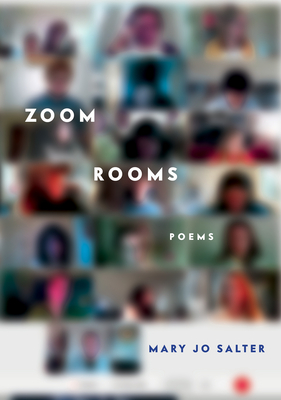It’s safe to say the 21st century has had one pace, one meter in its trajectory, and that pace is fast! From new discoveries to emerging technologies to climate change, every element of our lives has shifted into 2nd gear.
ZOOM ROOMS : POEMS by Mary Jo Salter depicts the strangeness that the global pandemic created when the whole world stopped. It is a collection of approachable poems that captures the loneliness, triumphs of humanity, and collective grieving we all felt in the past three years.

Many of you might find poetry to be discouraging or simply not your cup of tea. There have been many times where I’ve started to read a poem and had to stop to look up a word I didn’t know, so it is understandable that not everyone would want to labor to enjoy a poem. Salter’s collection, however, is as palatable as it is perceptive, even funny at times. In the poem titled “Island Diaries,” she explores what it would be like to find Shakespeare’s Prospero on the island he never left and how his loneliness and detachment have caused him to become mundane, very unlike the wizard he once was.
If you’ve had trouble understanding a poem on the first read, try not to be too frustrated with yourself! Every word, every line break, every punctuation mark has been heavily thought-out: it’s only natural that you might be confused after the first read. I typically read a poem at least three times before coming up with my conclusions for it.
If you don’t resonate with or like the poem you’re reading, skip it! There’s no need for continuity in a poetry collection unless it is advertised as a narrative-whole. I’ve personally never read a collection in which every poem reached my soul and pulled me in, but I’ve also never read a collection that didn’t have at least one poem that I adored and kept with me.
Something I adore about poetry, besides the attention to detail, is that interpretation is entirely up to the reader. Sure, I could look up what Salter meant by The Tempest metaphor, but that would ruin the thrill of using my own imagination to surmise that the boring Prospero she found on the lonely island was who she was before the pandemic. Maybe his never-ending tales represent memories from before the world stopped moving, when ideas and adventures were unencumbered. Or maybe that’s not what Salter was trying to convey, but no one is completely wrong in interpreting poetry.
In the poem titled “Zoom Rooms,” Salter portrays the disconnect and heartache of being separate but together in a Zoom call. How, after being able to go outside and return to the world, there is a strangeness to being close again surrounded by sounds that are not able to be muted. She uses sonnets that are connected by theme but isolated in their substance as a metaphor for our isolation during the pandemic.
If you’ve read John Keats’ “Ode to a Grecian Urn” then you might be familiar with ekphrastic poetry (eck-frass-tick). Salter writes ekphrastic poetry, as she’s done in previous collections such as “The Surveyors” and “Unfinished Painting,” in which she delves into a piece of art to find its narrative.
Caitlyn Doyle from Literary Matters magazine sat down with Salter to discuss what inspires her poetry and what shaped this collection specifically: A Conversation with Mary Jo Salter
If you pick up this book and still find it too daunting, I suggest an even more approachable collection, DUNCE by Mary Ruefle, in which Ruefle takes everyday objects and creates beautiful meaning in all of them.
Discover more from Cook Memorial Public Library District
Subscribe to get the latest posts sent to your email.
Categories: Books and More
Tags: Books and More
